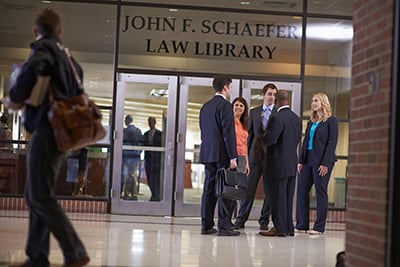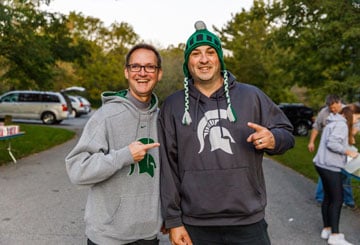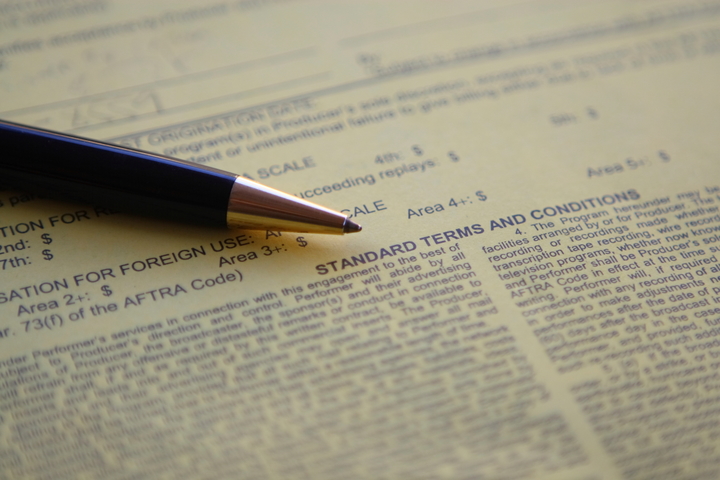The Michigan State University College of Law Code of Student Discipline forbids "any act of plagiarism in the submission of a written assignment." It also forbids "[a]ny act of deceit, dishonesty, or misrepresentation." Plagiarism is a form of misrepresentation. It is the appropriation of the words, ideas or thoughts of another and representation of them as one's own original work.
Example: A student can unintentionally plagiarize. A student submitted a journal paper and it was selected for publication. After cite checks were conducted the student was charged with failure to properly cite the source of the information. Footnotes were not sufficient to avoid plagiarism. Therefore, students should not use words verbatim without listing them as quotes, providing quotation marks, and proper citation. Incidents of plagiarism tend to arise most with ULWR papers, due to time constraints. Students are encouraged to manage their time accordingly.
It is the policy of the Michigan State University College of Law that any student found guilty of plagiarism, whether in connection with an examination or any paper, assignment or project, including but not limited to course assignments, research assignments by individual professors, directed studies, and Moot Court and Law Review written work, shall be subject to the procedures and penalties set forth in the Code of Student Discipline.
Plagiarism is avoided if proper attribution is made for the words and ideas of others since this makes it clear to the reader that the author is not claiming the words or ideas as original. What is proper attribution? If the exact words (or the exact words with omissions) of another are used, the student must so indicate by the use of quotation marks or appropriate indentation, and at that place in the work, either by footnote, endnote or textual reference, must specify the exact location of the source. If a thought or idea of another person is used, the student must, at that place in the work, specify the source. Restatement of another's ideas by means of paraphrase is to be avoided and in any event does not relieve the obligation of giving credit to the source. Proper attribution requires noting the source of the words and ideas used at the point where they appear in the work and not simply as part of a general bibliography. Also, any acknowledgment of another's work must refer to all material not the original work of the writer: to acknowledge part of another's work while using other parts without acknowledgment is still plagiarism.
Some special issues warrant mention.
- Students may be asked to draft forms, such as a will, a complaint, a contract, etc., as part of their work. Unless the instructor indicates otherwise, students are not expected to invent new forms. They may use another source, such as a form book or law office document bank, and make only the modifications called for by the problem presented. Citation to the source is not required unless so stated by the instructor. However, students may not use the work product of another student which was prepared concurrently or previously and submitted for credit in the same or in a different course at the law school unless expressly authorized by the instructor.
- Students engaged in preparing written work may be permitted or required to submit a rough draft of their work in progress. Since drafts are, by definition, not completed works, no question of plagiarism can arise over the submission of a draft. By the same token, approval of a draft that lacks proper attribution is never a defense to a charge that the final product is plagiarized. In those instances where a draft is submitted for credit, e.g., the draft appellate brief in Advocacy, proper attribution is required the same as if the draft were a final product.
- Students may be permitted or required by their instructor to work collaboratively with other students on a project. Where a writing is a product of such collaborative effort, no acknowledgment need be made of the words and ideas of the various student contributors, but proper attribution must be made with respect to all other sources.
- The question of the academic sufficiency of a paper is different from the question of plagiarism. Plagiarism involves misrepresentation. An author may be honest as to the source of the ideas discussed and still receive a poor or failing grade if the project does not reflect enough of the writer's own work. The question of how much a writing is expected to reflect the author's original thought is up to the person to whom the writing is submitted.
In case of doubt about what is expected, ask your professor, as you are responsible for the outcome.
Confirmed violations of the plagiarism policy are reported to the character and fitness section of the state bar.



